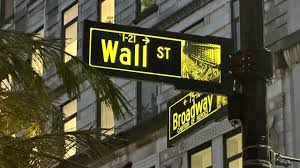Global equities, the dollar, and oil all plummeted on Thursday as President Donald Trump’s dramatic new U.S. trade tariffs raised worries of a worldwide recession and pushed investors to seek safe-haven assets like bonds and the yen.
Traders were alarmed by the severity of a new baseline 10% duty on imported goods as well as some eye-watering reciprocal levies on dozens of nations that Trump claimed had unfair trade barriers.
Ahead of what was predicted to be a tumultuous start in the United States, Wall Street’s S&P 500 and Nasdaq futures were down 3.4% and 3.9%, respectively.
The dollar saw a 2% drop, setting the stage for its worst daily beating since November 2022 and its most difficult start to a year since 1995.
In Europe, where the 27-country EU group now faces a 20% reciprocal levy, bourses swung between falls of 1.3% and 2.6% as Brussels and other capitals voiced anger.
Tokyo fell 2.7% and had its worst week in almost two years in Asia, where some of the hardest levies were concentrated. Even more clobbered was Vietnam.
The credit rating agency Fitch warned that the tariffs were a “game-changer” for the U.S. and global economy, while Deutsche Bank called them a “once-in-a-lifetime” moment that could knock 1% and 1.5% off U.S. growth this year.
Analysts at JPMorgan said the tariffs were “significantly higher than the realistic worst-case scenario.”
“Many countries will likely end up in a recession,” said Olu Sonola, head of Fitch’s U.S. economic research.
“You can throw most forecasts out the door if this tariff rate stays on for an extended period of time.”
Fitch downgraded China’s credit rating shortly after, citing the steep U.S. tariffs as the reason.
U.S. Treasury yields dropped toward 4% as a result of the rush for ultra-safe government bonds that guarantee income, while Germany’s 10-year yield—the European benchmark borrowing rate—dropped 8.5 basis points to 2.64%.
The greatest economy in the world will see its effective import taxes rise to their highest levels in a century as a result of the comprehensive new tariffs.
Global central banks are expected to lower interest rates, which is good for bonds if they do cause recessions.
On Thursday, Wall Street was prepared for a savaging.
The taxes on China, where Apple bases a large portion of its manufacturing, caused the company to go down 6.5%. Amazon.com went down 5%, 1.8% for Microsoft, and 3.5% for AI poster child Nvidia.
Laptops 1000As concerns have grown, the ‘Magnificent Seven’ internet firms have already lost trillions of dollars this year.
“This is how you sabotage the world’s economic engine while claiming to supercharge it,” said Nigel Green, CEO of global financial advisory deVere Group.
CHINA FOCUS
Trump’s levies struck Asia particularly badly. A reciprocal tariff of 34% was imposed on China, 24% on Japan, 25% on South Korea, and 46% on Vietnam.
In reaction, Vietnamese equities opened at a 6.7% decline, while companies that strongly rely on Vietnamese and other Asian suppliers, such as Nike, Adidas, and Puma, all opened at a 10% decline.
With China, Canada, and Europe all threatening remedies, investors were liquidating exposure to global growth as the risk-sensitive Australian dollar declined as well.
A 4% decline in oil, a gauge of economic activity, put Brent down below $72 a barrel and put it squarely on track for its worst day of the year.
As foreign exchange traders sought refuge outside of the U.S. dollar, Japan’s yen surged more than 1.5% to 147.01 per dollar, while gold reached a record high above $3,160 an ounce before losing speed.
As the euro jumped 2% to $1.10, the Swiss franc, another classic safety play, reached its highest level in four months.
Ursula von der Leyen, the head of the European Union, stated that “the consequences will be dire for millions of people around the globe” and that the 27-member bloc was ready to retaliate if negotiations with Washington failed. “Uncertainty will spiral and trigger the rise of further protectionism.”
Despite overall tariffs of more than 50% on Chinese exports and the impact on Vietnam, which is perceived as closing a popular workaround route, China kept its currency largely stable, keeping the yuan’s decline to roughly 0.4%.
Losses in Hong Kong stocks opened to roughly 1.5%, while Shanghai stocks opened to about 0.5% due to China’s large domestic economy and Beijing’s hoped-for support.
George Saravelos, a strategist at Deutsche Bank, stated that the main focus for the coming days should be on whether the dollar keeps declining and how China and Europe would react.
“Given the dramatic nature of the moves, we are becoming increasingly concerned that the dollar is at risk of a broader confidence crisis,” he stated.

















